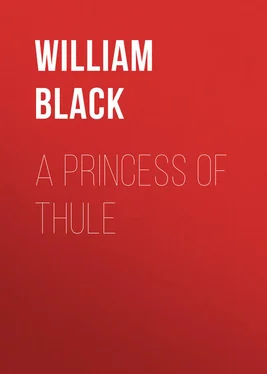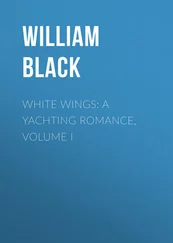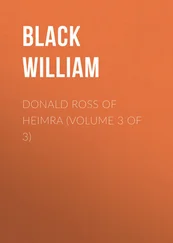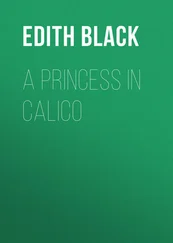William Black - A Princess of Thule
Здесь есть возможность читать онлайн «William Black - A Princess of Thule» — ознакомительный отрывок электронной книги совершенно бесплатно, а после прочтения отрывка купить полную версию. В некоторых случаях можно слушать аудио, скачать через торрент в формате fb2 и присутствует краткое содержание. Жанр: foreign_antique, foreign_prose, на английском языке. Описание произведения, (предисловие) а так же отзывы посетителей доступны на портале библиотеки ЛибКат.
- Название:A Princess of Thule
- Автор:
- Жанр:
- Год:неизвестен
- ISBN:нет данных
- Рейтинг книги:3 / 5. Голосов: 1
-
Избранное:Добавить в избранное
- Отзывы:
-
Ваша оценка:
- 60
- 1
- 2
- 3
- 4
- 5
A Princess of Thule: краткое содержание, описание и аннотация
Предлагаем к чтению аннотацию, описание, краткое содержание или предисловие (зависит от того, что написал сам автор книги «A Princess of Thule»). Если вы не нашли необходимую информацию о книге — напишите в комментариях, мы постараемся отыскать её.
A Princess of Thule — читать онлайн ознакомительный отрывок
Ниже представлен текст книги, разбитый по страницам. Система сохранения места последней прочитанной страницы, позволяет с удобством читать онлайн бесплатно книгу «A Princess of Thule», без необходимости каждый раз заново искать на чём Вы остановились. Поставьте закладку, и сможете в любой момент перейти на страницу, на которой закончили чтение.
Интервал:
Закладка:
Lavender started as from a trance, with an impression that he had been desperately rude. He was about to say that the gray gosling in the legend could not speak Scandinavian, when he was interrupted by Mr. Mackenzie turning and asking him if he knew from what ports the English smacks hailed that came up hither to the cod and the ling fishing for a couple of months in the autumn. The young man said he did not know. There were many fishermen at Brighton. And when the King of Borva turned to Ingram, to see why he was shouting with laughter, Sheila suddenly announced to the party that before them lay the great Bay of Uig.
It was certainly a strange and impressive scene. They stood on the top of a lofty range of hills, and underneath them lay a vast semicircle, miles in extent, of gleaming white sand, that had in by-gone ages been washed in by the Atlantic. Into this vast plain of silver whiteness the sea, entering by a somewhat narrow portal, stretched in long arms of a pale blue. Elsewhere the great crescent of sand was surrounded by a low line of rocky hill, showing a thousand tints of olive-green and gray and heather purple; and beyond that again rose the giant bulk of Mealasabhal, grown pale in the heat, into the Southern sky. There was not a ship visible along the blue plain of the Atlantic. The only human habitation to be seen in the strange world beneath them was a solitary manse. But away toward the summit of Mealasabhal two specks slowly circled in the air, which Sheila thought were eagles; and far out on the Western sea, lying like dusky whales in the vague blue, were the Plada Islands – the remote and unvisited Seven Hunters – whose only inhabitants are certain flocks of sheep belonging to dwellers on the main land of Lewis.
The travelers sat down on a low rock of gneiss to rest themselves, and then and there did the King of Borva recite his grievances and rage against the English smacks. Was it not enough that they should in passing steal the sheep, but that they should also, in mere wantonness, stalk them as deer, wounding them with rifle bullets, and leaving them to die among the rocks. Sheila said bravely that no one could tell that it was the English fishermen who did that. Why not the crews of merchant vessels, who might be of any nation? It was unfair to charge upon any body of men such a despicable act, when there was no proof of it whatever.
“Why, Sheila,” said Ingram, with some surprise, “you never doubted before that it was the English smacks that killed the sheep.”
Sheila cast down her eyes and said nothing.
Was the sinister prophecy of John the Piper to be fulfilled? Mackenzie was so much engaged in expounding politics to Ingram, and Sheila was so proud to show her companion all the wonders of Uig, that when they returned to Mevaig in the evening the wind had altogether gone down and the sea was as a sea of glass. But if John the Piper had been ready to foretell for Mackenzie the fate of Mackrimmon, he had taken means to defeat destiny by bringing over from Borvapost a large and heavy boat pulled by six rowers. These were not strapping young fellows, clad in the best blue cloth to be got in Stornoway, but elderly men, gray, wrinkled, weather-beaten and hard of face, who sat stolidly in the boat and listened with a sort of bovine gaze to the old hunchback’s wicked stories and jokes. John was in a mischievous mood, but Lavender, in a confidential whisper, informed Sheila, that her father would speedily be avenged on the inconsiderate piper.
“Come, men, sing us a song, quick!” said Mackenzie, as the party took their seats in the stern and the great oars splashed into the sea of gold. “Look sharp, John, and no teffle of a drowning song!”
In a shrill, high, querulous voice the piper, who was himself pulling one of the two stroke oars, began to sing, and then the men behind him gathering courage, joined in an octave lower, their voices being even more uncertain and lugubrious than his own. These poor fishermen had not had the musical education of Clan-Alpine’s warriors. The performance was not enlivening, and as the monotonous and melancholy sing-song that kept time to the oars told its story in Gaelic, all that the English strangers could make out was an occasional reference to Jura or Scarba or Isla. It was, indeed, the song of an exile shut up in “sea-worn Mull,” who was complaining of the wearisome look of the neighboring islands.
“But why do you sing such Gaelic as that, John?” said young Lavender, confidently. “I should have thought a man in your position – the last of the Hebridean bards – would have known the classical Gaelic. Don’t you know the classical Gaelic?”
“There iss only the wan sort of Kâllic, and it is a ferry goot sort of Kâllic,” said the piper, with some show of petulance.
“Do you mean to tell me you don’t know your own tongue? Do you not know what the greatest of all the bards wrote about your own island? ‘O et præsidium et dulce decus meum, agus , Tityre tu catulæ recubans sub tegmine Styornoway , Arma virumque cano, Macklyoda et Borvapost sub tegmine fagi?’ ”
Not only John the Piper, but all the men behind him, began to look amazed and sorely troubled; and all the more so that Ingram – who had picked up more Gaelic words than his friend – came to his assistance, and began to talk to him in this unknown tongue. They heard references in the conversation to persons and things with which they were familiar in their own language, but still accompanied by much more they could not understand.
The men now began to whisper awe-stricken questions to each other, and at last John the Piper could not restrain his curiosity. “What in the name of Kott is tat sort of Kâllic?” he asked, with some look of fear in his eyes.
“You are not such a student, John,” said Lavender, carelessly, “but still a man in your position should know something of your own language. A bard, a poet, and not know the classical form of your own tongue!”
“Is it ta Welsh Kâllic?” cried John, in desperation, for he knew that the men behind him would carry the story of his ignorance all over Borvapost.
“The Welsh Gaelic? No. I see you will have to go to school again.”
“There iss no more Kâllic in ta schools,” said the piper, eagerly seizing the excuse. “It iss Miss Sheila; she will hef put away all ta Kâllic from ta schools.”
“But you were born half a century before Miss Sheila; how is it that you neglected to learn that form of Gaelic that has been sacred to the use of the bards and poets since the time of Ossian?”
There were no more quips or cranks for John the Piper during the rest of the pull home. The wretched man relapsed into a moody silence and worked methodically at his oar, brooding over this mysterious language of which he had not even heard. As for Lavender, he turned to Mackenzie and begged to know what he thought of affairs in France.
And so they sailed back to Borvapost over the smooth water that lay like a lake of gold. Was it not a strange sight to see the Atlantic one vast and smooth yellow plain under the great glow of saffron that spread across the regions of the sunset? It was a world of light, unbroken but by the presence of a heavy coaster that had anchored in the Bay, and that sent a long line of trembling black down on the perfect mirror of the sea. As they got near the shore, the portions that were in shadow showed with a strange distinctness the dark green of the pasture and the sharp outlines of the rocks; and there was a cold scent of sea-weed in the evening air. The six heavy oars plashed into the smooth bay. The big boat was moored to the quay, and its passengers landed once more in Borva. And when they turned, on their way home, to look from the brow of the hill, on which Sheila had placed a garden seat, lo! all the West was on fire, the mountains in the South had grown dark on their Eastern side, and the plain of the sea was like a lake of blood, with the heavy hull and masts of the coaster grown large and solemn and distant. There was scarcely a ripple around the rocks at their feet to break the stillness of the approaching twilight.
Читать дальшеИнтервал:
Закладка:
Похожие книги на «A Princess of Thule»
Представляем Вашему вниманию похожие книги на «A Princess of Thule» списком для выбора. Мы отобрали схожую по названию и смыслу литературу в надежде предоставить читателям больше вариантов отыскать новые, интересные, ещё непрочитанные произведения.
Обсуждение, отзывы о книге «A Princess of Thule» и просто собственные мнения читателей. Оставьте ваши комментарии, напишите, что Вы думаете о произведении, его смысле или главных героях. Укажите что конкретно понравилось, а что нет, и почему Вы так считаете.












